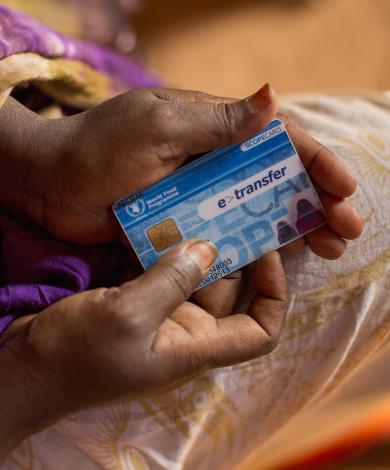Background
Cash transfers (CTs) are becoming a popular intervention of choice by agencies and NGOs as a complementary or alternative approach to food-based assistance, as part of an emergency response. There is strong evidence that CT programmes lead to an increase in household income and protect household assets from being sold, resulting in an increase in food quantity and improved dietary diversity which in turn are thought to protect children from malnutrition. However, the evidence for an impact of CTs on undernutrition is mixed and inconclusive. Despite this, CTs are increasingly being used in emergency responses with an objective of preventing acute malnutrition.
In 2013 the ENN completed a study into cash transfer programmes in Niger funded by OFDA and in collaboration with Save the Children. The aim of the study was to identify the factors most strongly associated with good nutrition outcomes in a cohort of children followed for five months during a cash transfer programme.
The results showed that significant associations with wasting remained amongst households with poorer socio-economic status, disease incidence, expenditure on medical care (controlled for disease), household size and younger age group. Expenditure on children’s food did not have a significant effect on risk of becoming wasted.
These results suggest that if cash transfers benefits are to be maximised to help prevent the occurrence of wasting in the under-five population in Niger, then attention needs to also focus on removing health-related barriers which can significantly influence nutrition outcomes. This in turn will require enhanced coordination across the health, WASH, livelihoods and nutrition sectors. The findings also have implications for how cash transfer programmes are targeted.
Based on these findings the ENN is conducting follow up research to understand how cash transfer programmes impact nutrition.
Project summary
Following a prospective observational study carried out on a cohort of children 6-36 months in Niger in 2012 which identified risk factors for acute malnutrition the following three hypotheses will be tested:
- Cash transfers given early will strengthen household livelihood resilience and protect the nutritional status of well-nourished children prior to the lean season, preventing acute malnutrition in children 6-36 months.
- A complementary health (and nutrition) package given alongside the early CT will maximise the potential of CTs to prevent acute malnutrition in children 6-36 months.
- Cash Transfers (either early or not) will have a longer term post-crisis impact on anthropometric status (compared to food-based interventions).
The study will take place in two countries and will involve a cluster controlled method(s) to determine the impact of CTs on child nutritional status; carried out using a programme theory (PT) approach. PT refers to the mechanisms that mediate between the cash and acute malnutrition. Whilst determining the impact gives an indication of the ‘what’ (summative evaluation), it is also important to establish the ‘why’ (formative evaluation) and ‘at what cost’ (cost benefit evaluation).
Using a PT approach we will plan the research to be both summative and formative; to determine the processes which may either hinder or promote acute malnutrition through CT programmes. The cost benefit analysis will measured in terms of average cost-effectiveness ratios (ACER) and incremental cost-effectiveness ratios (ICER) comparing the multiple intervention strategies per case study context, as relevant.
Publications
- The role of unconditional cash transfers during a nutritional emergency in Maradi region, Niger: A pre-post intervention observational study.
- Factors Associated With the Risk of Acute Malnutrition Among Children Aged 6 to 36 Months in Households Targeted by an Emergency Cash Transfer Program.
- The effectiveness of blanket supplementary feeding programmes in preventing acute malnutrition Evidence from research carried out in Chad: ENN Briefing Paper.

